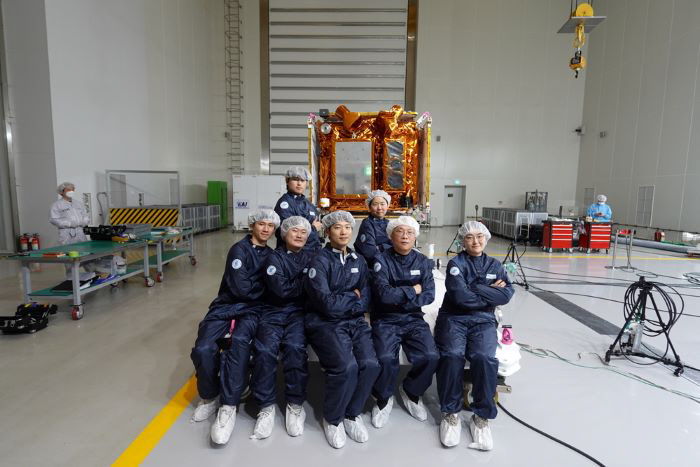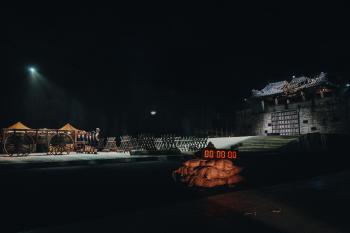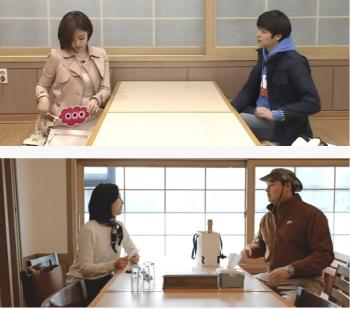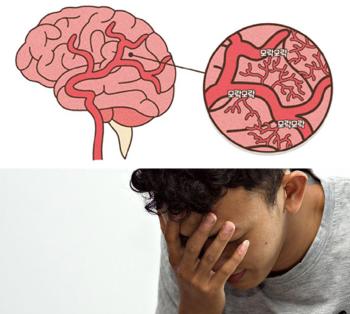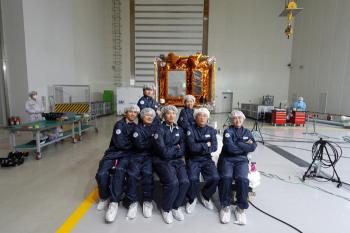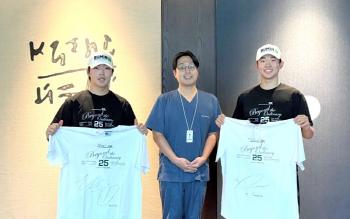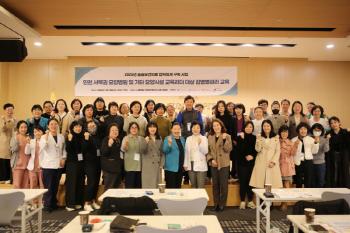Professor Park Chan-heum's team at Hallym University Chuncheon Sacred Heart Hospital finally wins the 2025 Human Interface Challenge
Nov 19, 2025
A research team led by Professor Park Chan-heum of the Department of Otolaryngology at Hallym University Chuncheon Sacred Heart Hospital (Director of the Nano-Bio Regenerative Medicine Research Institute at Hallym University) won the final winner in the '2025 Human In Space (hereinafter referred to as HIS) Challenge' program hosted by Boryeong Co., Ltd. on the 7th.
HIS aims to discover and support technologies, platforms, and medical systems that enable humans to stay in long-term space in cooperation with international space organizations and space companies such as Axiom Space in the United States. It started with 'Care in Space' in 2022 and changed its name to 'HIS Challenge' from 2023 and is the fourth time this year. It is currently evaluated as a global competition program recognized globally in the field of space medicine.
Professor Park Chan-heum's team participated in the Orbital Launch Funding section of the HIS program and won the final championship after a three-step examination under the theme of 「Developing a Mini-Satellite based system for 3D brain tumor spheroid culture and drug response analysis」.
This task is to cultivate brain tumor cells in a microgravity environment in space on an 8U (1U=10cm×10cm×10cm) small satellite, and to compare and analyze cell reactivity according to drug concentration changes with ground experiments. Empirical research using small satellites is essential to investigate the reactivity of anticancer drugs in brain tumors in space beyond the limitations of ground experiments. The research team was recognized for this research need and scientific validity.
With this victory, Professor Park Chan-heum's team will receive $300,000 (about 450 million won) for the launch of the space biotechnology research platform 'BioRex, BioReentry Experimental Satellite', which is currently being developed as a national project. In addition, the HIS Accelerator Program will provide multilateral support for the overall follow-up research, including customized mentoring by global space life science and healthcare experts, international networking, experimental design, and review of orbit verification possibilities.
It will also receive $100,000 in service credits to take advantage of AWS' cloud-based data analysis environment, as well as specialized infrastructure and consulting necessary for technology demonstration stages such as prototyping and environmental testing. Prototype production is an early prototype development stage that first verifies the function and stability of research equipment for demonstration in a space environment.
This achievement is significant in that the domestic research team has secured an opportunity to verify the actual orbit of the space biotechnology research platform, which is difficult to obtain alone. Above all, the victory of the HIS program is symbolic in that it is the first time in Korea that BioRex has established itself as a direct competitor in the rapidly growing field of space regenerative medicine, bio 3D printing, stem cells and aging research.
In particular, the fact that it won the HIS program involving global space companies shows that BioRex's technology and research reliability are internationally recognized. Through this, the research team has established a global cooperation pipeline that can lead to cooperation projects with international space agencies such as NASA and ESA, ISS-based research, and private research investment.
Professor Park Chan-heum said, "This victory in the HIS program is a meaningful achievement for Korea to establish its own research platform in the field of space biotechnology and to stand shoulder to shoulder with world-class studies." "The BioRex under development is the world's first attempt to quantitatively analyze the drug response of glioblastoma in a microgravity environment, which will open a new chapter in space biotechnology research."
Meanwhile, the space biology research payload 'BioCabinet' developed by Professor Park Chan-heum's team will be mounted on the next-generation mid-size satellite No. 3 and will head to space through the fourth launch of the Nuri spacecraft on Nov. 27.
HIS aims to discover and support technologies, platforms, and medical systems that enable humans to stay in long-term space in cooperation with international space organizations and space companies such as Axiom Space in the United States. It started with 'Care in Space' in 2022 and changed its name to 'HIS Challenge' from 2023 and is the fourth time this year. It is currently evaluated as a global competition program recognized globally in the field of space medicine.
Professor Park Chan-heum's team participated in the Orbital Launch Funding section of the HIS program and won the final championship after a three-step examination under the theme of 「Developing a Mini-Satellite based system for 3D brain tumor spheroid culture and drug response analysis」.
This task is to cultivate brain tumor cells in a microgravity environment in space on an 8U (1U=10cm×10cm×10cm) small satellite, and to compare and analyze cell reactivity according to drug concentration changes with ground experiments. Empirical research using small satellites is essential to investigate the reactivity of anticancer drugs in brain tumors in space beyond the limitations of ground experiments. The research team was recognized for this research need and scientific validity.
With this victory, Professor Park Chan-heum's team will receive $300,000 (about 450 million won) for the launch of the space biotechnology research platform 'BioRex, BioReentry Experimental Satellite', which is currently being developed as a national project. In addition, the HIS Accelerator Program will provide multilateral support for the overall follow-up research, including customized mentoring by global space life science and healthcare experts, international networking, experimental design, and review of orbit verification possibilities.
It will also receive $100,000 in service credits to take advantage of AWS' cloud-based data analysis environment, as well as specialized infrastructure and consulting necessary for technology demonstration stages such as prototyping and environmental testing. Prototype production is an early prototype development stage that first verifies the function and stability of research equipment for demonstration in a space environment.
This achievement is significant in that the domestic research team has secured an opportunity to verify the actual orbit of the space biotechnology research platform, which is difficult to obtain alone. Above all, the victory of the HIS program is symbolic in that it is the first time in Korea that BioRex has established itself as a direct competitor in the rapidly growing field of space regenerative medicine, bio 3D printing, stem cells and aging research.
In particular, the fact that it won the HIS program involving global space companies shows that BioRex's technology and research reliability are internationally recognized. Through this, the research team has established a global cooperation pipeline that can lead to cooperation projects with international space agencies such as NASA and ESA, ISS-based research, and private research investment.
Professor Park Chan-heum said, "This victory in the HIS program is a meaningful achievement for Korea to establish its own research platform in the field of space biotechnology and to stand shoulder to shoulder with world-class studies." "The BioRex under development is the world's first attempt to quantitatively analyze the drug response of glioblastoma in a microgravity environment, which will open a new chapter in space biotechnology research."
Meanwhile, the space biology research payload 'BioCabinet' developed by Professor Park Chan-heum's team will be mounted on the next-generation mid-size satellite No. 3 and will head to space through the fourth launch of the Nuri spacecraft on Nov. 27.
|
This article was translated by Naver AI translator.
